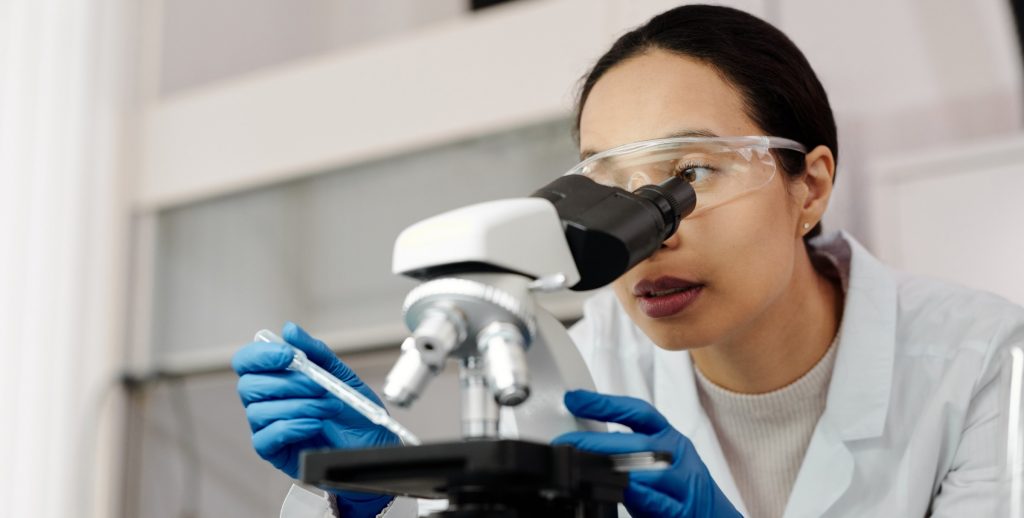How do I know if I have an anal Gonorrhoea infection?
When most people think of STIs, they tend to think of infections that affect the genitals. However, one of the lesser-known aspects of some STIs is that they can infect several parts of the body.
One STI that can infect many parts of the body is Gonorrhoea, which can infect the genitals, eyes, throat, and even the rectum.
But how does this happen?
If you’re concerned that you may have an anal Gonorrhoea infection, keep reading to find out more. The more knowledge you have, the more effectively you can respond.

Are you worried about STIs? Book an appointment at a sexual health clinic today.
What is anal Gonorrhoea?
Gonorrhoea is a sexually transmitted infection (STI) caused by the bacterium Neisseria gonorrhoeae. Gonorrhoea can infect both men and women. Occasionally, the infection can also be spread from mother to baby during childbirth.
Gonorrhoea infections are site-specific, meaning the bacteria tend to infect the area at the site of infection. So, if you get an anal Gonorrhoea infection, it means that Gonorrhoea bacteria infected the mucous membranes in your rectum.
How do you get anal Gonorrhoea?
Anal Gonorrhoea is typically contracted through anal sex, but it’s not the only way it can be transmitted. If infected genital fluids come into contact with the anus, either through sexual activity or other means, they can cause an infection. Here’s how:
- Unprotected anal sex: This is the most common way anal Gonorrhoea is transmitted. If a person has unprotected anal sex with someone who has Gonorrhoea, they are at risk of getting the infection. This is true for both men and women.
- Unprotected anal-oral sex: Performing oral sex on a partner’s anus (“rimming”) is also a risk for catching Gonorrhoea if the infection is present in the throat. Almost all Gonorrhoea in the throat is silent, so infected people don’t know they have the infection.
- Sharing sex toys: If sex toys are shared and not properly cleaned between uses, they can spread Gonorrhoea. This is because the bacteria can live on the surface of the toys and be passed on to the next user.
- Touching the anus after touching the genitals: If a person with a genital Gonorrhoea infection touches their genitals and then their anus, they can transfer the bacteria to the anus.
What are the symptoms of anal Gonorrhoea?
Anal Gonorrhoea can often be difficult to diagnose because the majority of cases do not cause symptoms. However, when symptoms do occur, they can include:
- Anal mucous or discharge
- “Tenesmus” – the feeling of wanting to continue evacuating faeces even though there is nothing left to come out
- Bleeding from the anus
- Itching around the anus
- Painful bowel movements
How do you test for anal Gonorrhoea?
The only way to test for anal Gonorrhoea is to get a swab sample of the affected area.
Better2Know provides a simple, straightforward Home Test Kit for anal Gonorrhoea infections. It will also test you for a Chlamydia infection in your anus at the same time.
If you think you have an anal Gonorrhoea infection, click the button below to order your Home Test Kit.
How can I avoid getting anal Gonorrhoea?
Preventing anal Gonorrhoea involves taking steps to protect yourself and others during sexual activity. Here are some key strategies:
- Use condoms: Using condoms during anal sex is one of the most effective ways to prevent the transmission of Gonorrhoea and other STIs. Make sure to use a new condom after each sexual act.
- Communicate with your partners: Open communication about sexual health can help ensure that all parties are aware of any potential risks. If you or your partner has an STI, it’s important to discuss this before engaging in sexual activity. Getting tested regularly allows us to detect hidden infections (those that don’t produce symptoms and so get passed on unintentionally).
- Clean your sex toys and cover them with condoms: If you use sex toys, wash them with soap and water (or whatever cleaning instructions the manufacturer provides) after each use and cover them with a new condom for each sexual act.
How do I treat anal Gonorrhoea?
If you’re diagnosed with Gonorrhoea, you’ll typically be prescribed antibiotics. As some types of Gonorrhoea are resistant to antibiotics you can be prescribed with two different antibiotics to take at the same time. It is important to have another test two weeks after completing your medication to check that it worked, so that different treatment can be tried if the infection has not cleared. Your doctor will probably suggest you get tested for other STIs at this point, like HIV. Having anal Gonorrhea increases the likelihood of you contracting other infections if you’re still infected.
When you get tested with Better2know, we will connect you with a doctor who will help you access the medication you’ll need.
Final thoughts
Anal Gonorrhoea infections can cause some serious negative health outcomes if they’re left untreated.
If you think you may have an anal Gonorrhoea infection, call the number at the top of this page to speak to one of our trained Sexual Health Advisors. You can also book an appointment right now by clicking the link below and starting your online booking process.

Don’t leave your sexual health to chance. Book an appointment at a sexual health clinic near you.
This article has been medically reviewed by Dr. Steve Chapman, 29/07/2024.
Categories
- Awards
- Bacterial Vaginosis
- Blood Tests
- Cardiovascular Health
- Cervical Cancer
- Chlamydia
- Condoms
- Covid-19
- Gardnerella
- Genital Warts
- Gonorrhoea
- Health and Wellness
- Hepatitis A
- Hepatitis B
- Hepatitis C
- Herpes
- HIV
- HIV (AIDS)
- Home Testing
- HPV
- Instant Testing
- MSM
- Mycoplasma
- News
- Non-Specific Urethritis
- PAP Smear
- Pre-Pregnancy
- Sexual Health
- STD Symptoms
- STD Tests and Screens
- STI Transmission
- Stigma
- STIs
- Swab Tests
- Syphilis
- Trichomonas
- Ureaplasma
- WSW
- Zika




